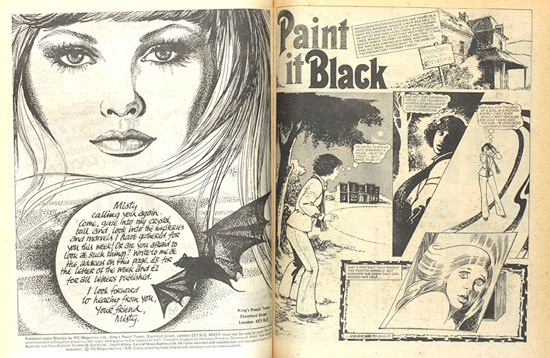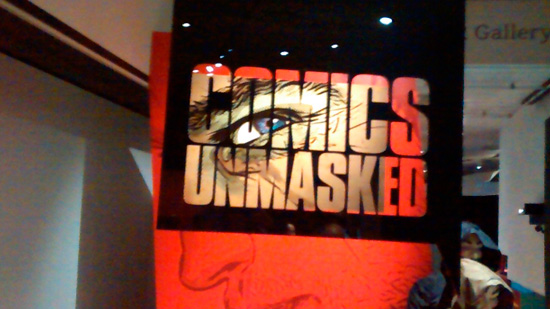大英图书馆漫画展开幕
周四,历来以学术之家著称的大英图书馆突然转展出漫画书籍了。《漫画揭秘:艺术和无政府状态》展出时间为5月2日至8月19日。
The British Library is known internationally as a home of academia but on Thursday, it veered off its reputation for a change and previewed its latest exhibition to the world of comic books, 'Comics Unmasked: Art and Anarchy in the UK'.

Comics Unmasked: Art and Anarchy in the UK
This is the first time the British Library has put its name behind the medium of comic books. It hopes to celebrate the impact British comic book artists and writers have had on the international scene.
"Having the British Library put themselves behind an exhibition like this really really shows a very, very wide audience that they've arrived in a way they haven't up until now. I think it's a real game changer." said John Harris Dunning, British Library.
Adrian Edwards is the lead curator of printed historical sources at the British Library and he jumped at the idea of a comic book exhibition after hearing about it two years ago.
"What we want to do is show that comics are a valuable resource for understanding Britain and its society in past decades and centuries so. We're very interested in putting creative artists in touch with our collections, helping inspire the creative industries and I think this fits with that agenda absolutely." said Adrian Edwards, British Library.

Comics Unmasked: Art and Anarchy in the UK
The exhibition doesn't just show modern day graphic novels and comic books like 'Preacher', 'Judge Dredd', 'V for Vendetta', 'Sandman' and 'Kick-Ass' but goes back centuries to show how Britain has a long history in the art of comics.
"This exhibition goes back to 1470 with an incredible pauper's Bible which tells Bible stories in comic book form and it shows what a long tradition we've had. Britain has been at the forefront of comic books for many many centuries when you think of William Hogarth or William Black and many many others who've paved the way for our renaissance of comics." said Paul Gravett, British Library.
There are six sections to the exhibition. Each of them shows how British comics have a history of being used to be subversive. Gravett explains that as a medium, comic books have far more power than people expect.
"Comics are really dangerous because when trial tests were done, the Pentagon discovered that the most effective way of implanting information into their troops was by using comics, not pure text or text with photographs or text with pictures but comic books - the most effective way to educate and influence people's thinking. They work because they engage both parts of our brain and they require you to be actively involved in reading." said Paul Gravett, British Library.
"Comics Unmasked: Art and Anarchy in the UK" is on display at the British Library from May 2nd through to August 19th.







